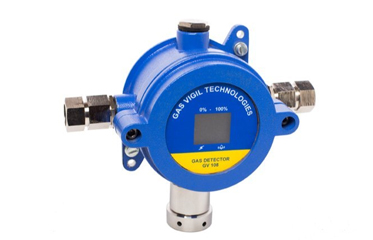
Benefits Of Using Methane Gas Detectors
In the dynamic world of oil and gas, safety is of paramount importance. The extraction and processing of hydrocarbons carry inherent risks, including the potential for gas leaks that can lead to catastrophic consequences. Among various gases present in the oil and gas sector, methane is one of the most concerning due to its flammable nature and its significant role as a greenhouse gas. To mitigate the dangers associated with methane, the implementation of methane gas detectors has become a crucial safety protocol. In this blog post, we will explore the myriad benefits of using methane gas detectors in the oil and gas industry.
Enhanced Safety for Personnel
The primary advantage of methane gas detectors is the enhancement of safety for workers on-site. Methane is not toxic, but it is an asphyxiant and can displace oxygen in confined spaces, leading to hazardous conditions. Advanced methane detectors can quickly identify the presence of methane in the environment, providing early warnings to workers. This timely detection allows for evacuation or other safety measures to be implemented before a dangerous situation escalates, ultimately protecting personnel from potentially life-threatening circumstances.
Prevention of Explosions and Fires
Methane is highly flammable, and leaks can ignite, resulting in explosions or fires that can cause extensive damage and loss of life. By installing methane gas detectors in strategic locations, businesses can monitor for leaks in real-time. These detectors can trigger alarms and automatic shut-off systems, significantly reducing the risk of ignition and ensuring that necessary safety protocols are followed promptly.
Environmental Protection
As a potent greenhouse gas, methane has a global warming potential many times greater than carbon dioxide over a short time frame. Detecting and preventing methane leaks not only safeguards personnel and property but also contributes to environmental conservation efforts. By utilizing methane gas detectors, companies can actively monitor and minimize their methane emissions, fulfilling their responsibility towards sustainability and compliance with environmental regulations.
Regulatory Compliance
The oil and gas industry is subject to strict regulatory oversight concerning emissions and safety standards. Many jurisdictions mandate the use of methane detectors to comply with health, safety, and environmental regulations. By investing in these detection systems, companies can avoid legal issues, fines, and penalties associated with non-compliance. Furthermore, demonstrating a commitment to safety and environmental stewardship can enhance a company’s reputation among stakeholders, clients, and the public.
Cost Savings through Leak Prevention
The financial implications of methane leaks can be significant. Not only do they pose direct costs due to lost product, but they also can lead to legal liabilities, cleanup costs, and increased insurance premiums. By proactively detecting and addressing leaks with methane gas detectors, companies can save considerable amounts of money in the long run. The ability to monitor and rectify issues promptly means that less product is lost, and resources are utilized more efficiently.
Improved Operational Efficiency
Methane gas detectors can also contribute to improved operational efficiency. Continuous monitoring of methane levels allows for the optimization of processes and equipment. With real-time data, operators can make better-informed decisions regarding maintenance and operations, reducing downtime and enhancing overall productivity.
Data-Driven Insights for Better Management
Modern methane detectors come equipped with advanced technologies that allow for data collection and analysis. This information can be invaluable for identifying trends, assessing risks, and improving safety protocols. By utilizing data analytics, companies can enhance their risk management strategies, making informed decisions that promote safety and productivity.
Conclusion
The oil and gas industry faces unique challenges when it comes to safety and environmental impact. The use of methane gas detectors provides a robust solution to address these challenges, ensuring the safety of personnel, protecting the environment, and promoting operational efficiency. In an industry where the stakes are high, investing in methane detection technology is not just a regulatory requirement; it is a crucial step towards fostering a culture of safety and responsibility. As technology continues to advance, the integration of innovative gas detection systems will undoubtedly play a pivotal role in shaping the future of the oil and gas sector. By embracing these advancements, companies can ensure a safer, more sustainable, and efficient operation in their quest for energy.
